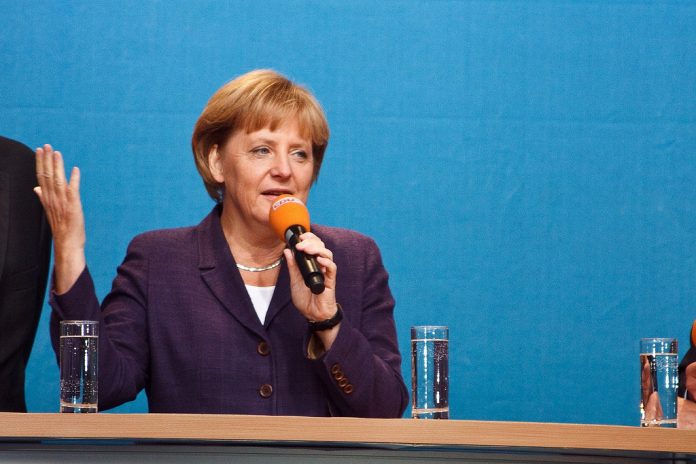The reforms that Europe needs go well beyond the issues of the economic and currency union. So said German Chancellor Angela Merkel during a press conference in Berlin on April 17.
Issues including a joint asylum system, coherent EU foreign policy and common security initiatives are “all equal columns of the same project: a strong Europe, one bound by values,” she said.
As reported by Bloomberg, Merkel’s public comments allowed her to reach out to French President Emmanuel Macron, who was scheduled to visit Berlin April 19, and to lift herself above coalition squabbling over the scope of overhaul to the euro area.
Behind closed doors, however, Merkel aligned herself with her Christian Democratic Union-led bloc, which is seeking to anchor measures such as completing the banking union to Bundestag approval.
Merkel later told lawmakers from her caucus that overhauling the European Stability Mechanism (ESM) euro-area backstop and turning it into a form of European Monetary Fund would require treaty change, meaning each member state would need to ratify it.
According to party officials, this statement drew applause from the meeting.
Meanwhile, Volker Kauder, the head of Merkel’s parliamentary caucus, stressed the important role that German lawmakers will play. “We sought to dial back expectations, saying that the Bundestag would “not only intensively take part in, but also shape” the negotiations.
In turn, Andrea Nahles, the Social Democratic parliamentary leader, criticised “red lines” put up by her counterparts in government that go beyond their coalition accord, saying it was “unacceptable”.
Bloomberg noted that the Social Democrats, led until recently by former EU Parliament President Martin Schulz, are more willing to go along with euro reform, whereas many in Merkel’s bloc are concerned that Germany will be left to underwrite the debts of more spendthrift euro members.

